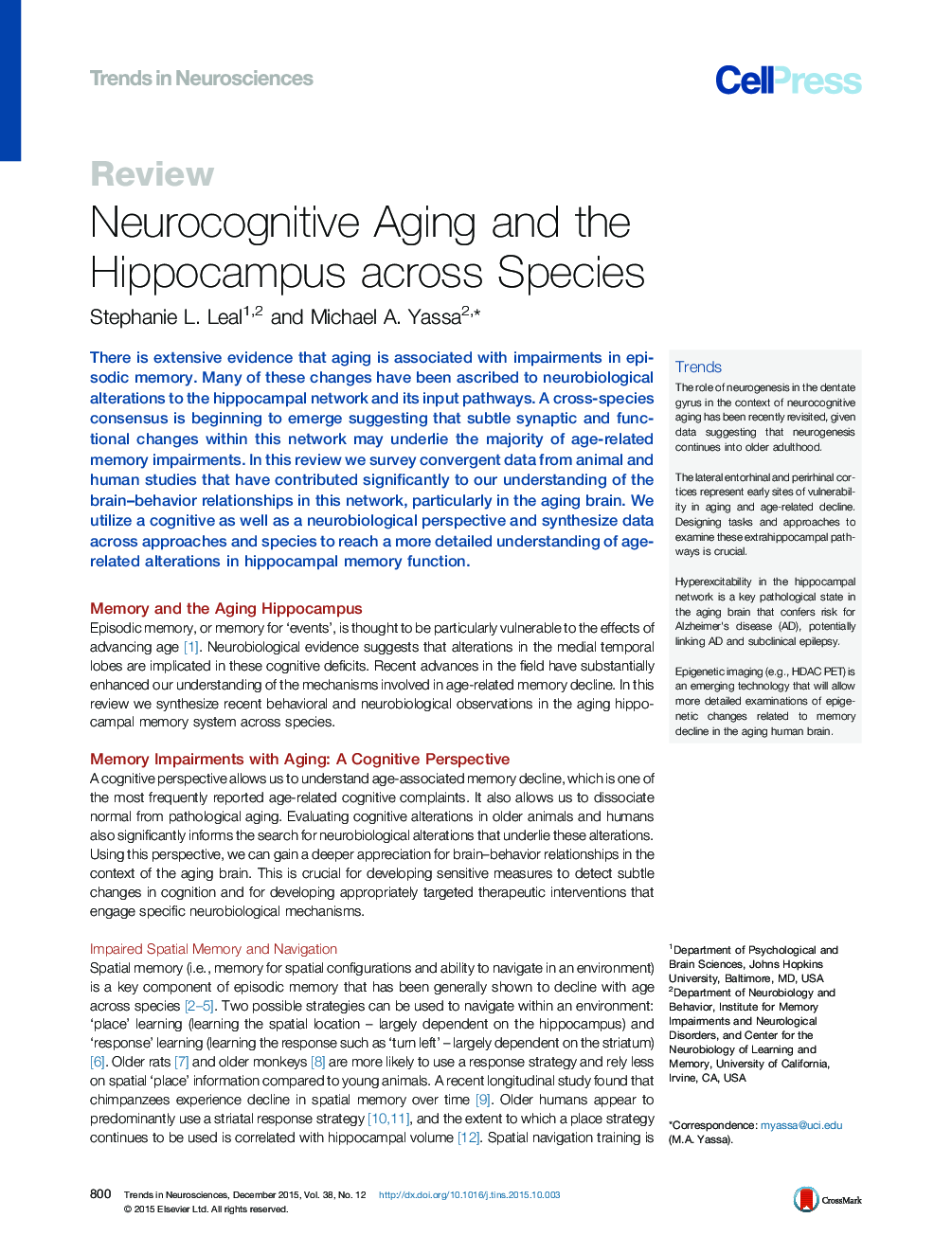| Article ID | Journal | Published Year | Pages | File Type |
|---|---|---|---|---|
| 4354211 | Trends in Neurosciences | 2015 | 13 Pages |
There is extensive evidence that aging is associated with impairments in episodic memory. Many of these changes have been ascribed to neurobiological alterations to the hippocampal network and its input pathways. A cross-species consensus is beginning to emerge suggesting that subtle synaptic and functional changes within this network may underlie the majority of age-related memory impairments. In this review we survey convergent data from animal and human studies that have contributed significantly to our understanding of the brain–behavior relationships in this network, particularly in the aging brain. We utilize a cognitive as well as a neurobiological perspective and synthesize data across approaches and species to reach a more detailed understanding of age-related alterations in hippocampal memory function.
TrendsThe role of neurogenesis in the dentate gyrus in the context of neurocognitive aging has been recently revisited, given data suggesting that neurogenesis continues into older adulthood.The lateral entorhinal and perirhinal cortices represent early sites of vulnerability in aging and age-related decline. Designing tasks and approaches to examine these extrahippocampal pathways is crucial.Hyperexcitability in the hippocampal network is a key pathological state in the aging brain that confers risk for Alzheimer's disease (AD), potentially linking AD and subclinical epilepsy.Epigenetic imaging (e.g., HDAC PET) is an emerging technology that will allow more detailed examinations of epigenetic changes related to memory decline in the aging human brain.
